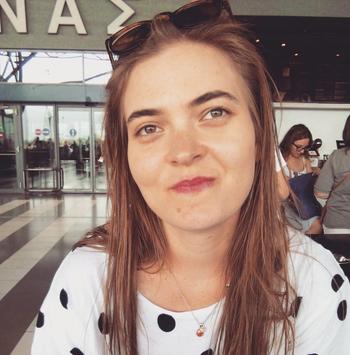Dr. Maya Jastrzebowska

Arbeitsbereich Neural Dynamics of Visual Cognition
Researcher
Room JK 25/228
14195 Berlin
I joined the lab in June 2021. Prior to this, I obtained a B.Sc.Eng. and M.Sc.Eng. in Biomedical Engineering at the Warsaw University of Technology. During my studies, I completed a year-long Erasmus exchange at the École Polytechnique Fédérale de Lausanne (EPFL) and an internship at the University Hospital of Lausanne. I returned to EPFL for my Ph.D., during which I used fMRI, behavioral experiments, and various Bayesian modeling techniques to study brain function and behavior. The main focus of my Ph.D. was the investigation of the neural correlates of visual crowding, which I examined using dynamic causal modeling and population receptive field mapping.
General research interests
It is my view that perception can be described as an inference process. Over the course of our development, we build a model of the world around us that is constantly confronted with new sensory input, leading to resolution of ambiguity and model refinement. The model is stored across vast brain networks and has a profound effect even on early sensory processing. Understanding the role and mechanisms of recurrent processing is therefore key to understanding the way in which the human brain works.
My main research interest is recurrent processing and structure-function coupling in visual perception, with a special focus on the role of population receptive field (pRF) properties. I use ultra-high field (7T) fMRI, which allows the study of cortical layers, differentially targeted by feedforward and feedback inputs. I study recurrent processing using the paradigms of visual crowding and Mooney image disambiguation. I have 3 projects either ongoing or in the works, all of which involve data collection at the Max Planck Institute of Human Cognitive and Brain Sciences, part of an ongoing collaboration with Professor Nikolaus Weiskopf.
I am currently funded by Radek’s ERC grant. From October 2022, I will be funded by a 2-year HORIZON MSCA Postdoctoral Fellowship grant (until September 2024).
Research projects
In my first project, I am investigating layer-specific pRF properties as a candidate mechanism for spatial contextual effects on early sensory processing under visual crowding. To this end, I am using a behavioral paradigm that manipulates local and global spatial features in crowding, in combination with population receptive field mapping in 7T fMRI.
The goal of my second project will be to characterize the relationship between mesoscopic brain structure and function and determine its predictive value for behavioral performance in crowding. Here, I will build on the insights obtained from project 1; I will study the relation between functional and structural connectivity - as estimated through dynamic causal modeling of 7T fMRI data and tractography, respectively - and behavioral performance in the crowding task.
In my third project, I aim to determine the effect of disambiguation of Mooney images on layer-specific pRF properties and neural representations across space and time. To this end, I will present pre- and post-disambiguation Mooney images to participants undergoing 7T fMRI and, separately, EEG. I will then use representational similarity analysis to resolve the differential neural representations in space and time.
Student supervision & opportunities
I am supervising the lab rotation of Marek Němeček, a Cognitive Neuroscience Master’s student at the Berlin School of Mind and Brain. We are investigating the effect of prior object knowledge on neural representations, using Mooney images (ad project 3 above).
I am not currently looking for students, but if any of my projects have piqued your interest, please feel free to contact me and we can discuss internship/lab rotation opportunities.